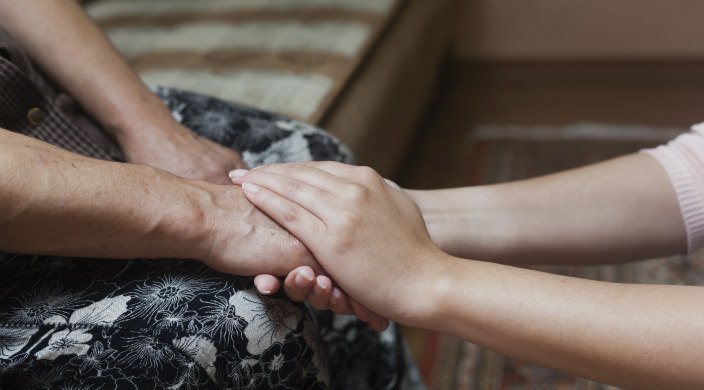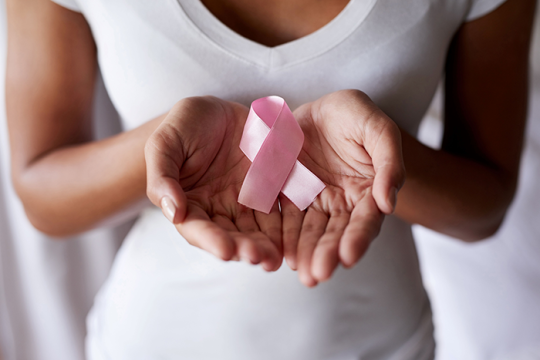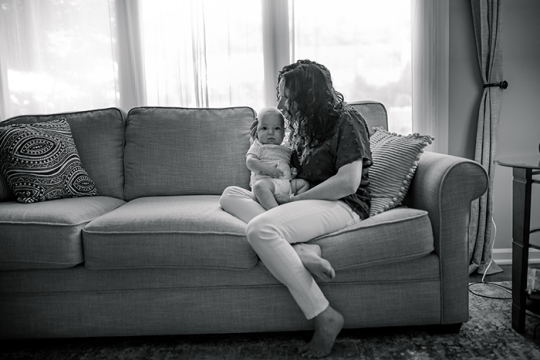
And Hannah wept. Feelings of loneliness consumed her, and she began questioning her self-worth. “What is wrong with me?”, she asked. “Am I not good enough?”, she pondered. Struggling with infertility, Hannah fell into the deep abyss of depression. Filled with sadness, anger, and frustration, she did what no one had done before. She made an impassioned plea to God, not simply praying for a child, but praying that one day she might feel whole again.
On each Rosh HaShanah, we read the story of Hannah, and are reminded that her plea to God represents one of the first personal prayers to God in Jewish tradition. Although the vignette above is a modern midrash (interpretations and commentary on biblical texts), it encompasses feelings and thoughts that many people struggle with today.
I will never be a woman who experiences the challenges of infertility, and I cannot claim to know the feelings that may arise from such a scenario. But, I do know what it means to be filled with sadness, anger, and frustration. I do know what it means to make an impassioned plea to God to be whole again. I do know that Hannah’s story reminds us that depression is real and pervasive.
Although we have made great strides in raising awareness about mental illness in recent years, it is a subject that still is spoken about in a whisper. Unfortunately, negative stereotypes and judgments of those who suffer with the disease cause discrimination and exclusion, as well as mistrust and fear. In some instances, individuals with mental illness are unable to secure jobs or decent housing, and often cannot maintain long-term, stable relationships. Feelings of isolation and ostracization from the community can intensify emotional struggles, and are among the reasons those with mental illness often choose not to seek out the help they need.
During these sacred days of the High Holiday season, when we stand before God and each other, opening our souls to the possibility of becoming better human beings, most of us know we do not travel life’s journey alone. And yet, there are those who feel no one is willing to travel the journey with them. Knowingly or not, mental illness impacts us all.
“Dena,” a congregant, came to my office in tears. The only words that came out of her mouth were, “Why, rabbi, why? Why do I feel this way? I just want to feel better.” Nothing I could say would take away Dena’s pain, but I could respond to her cry for help: “I don’t know why, but I do want you to feel better.” Then I asked Dena a few questions myself: “How can we get you the help you need? What can we do so you will feel supported?”
Just as the blast of the shofar awakens our souls, so, too, can it awaken us to the pleas of people like Dena, and help us become a community that welcomes, includes, and supports everyone, especially those in need. There are many ways we can do this: We can listen; we can be present and supportive; we can be mindful of the language we use, for example, referring to an individual with schizophrenia rather than a schizophrenic; and if we notice a friend or family member struggling emotionally, we can address the issue. Knowing someone is there to help is the number one reason those with mental illness seek treatment. Our willingness to remember that mental illness does not define them and to advocate on their behalf gives them much-needed strength to overcome the barriers they face.
During this season, when we hear the calls of the shofar, may they open our hearts and strengthen our awareness of the stigmas surrounding mental illness. May they empower us to reach out our hands to those who need more light amidst the darkness. May they infuse us with enough bravery to share our own struggles with depression, anxiety, or other mental illnesses. May they remind us that we are not alone and thus may they help us to feel safe, cared for, and loved.
Related Posts

The Holy Act of Caring for our Bodies: The Importance of Breast Cancer Testing Early and Often

Navigating Infertility: Resources, Reflections, and Rituals

